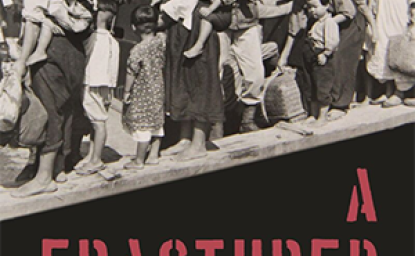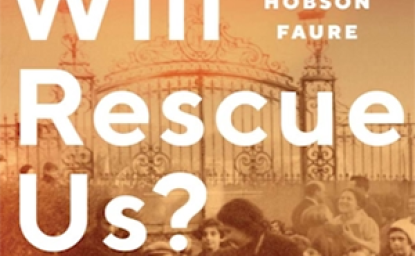200. Hungary 10 Years After: Permanence of Suspension

The current trans-Atlantic/European partnership is characterized by some remarkable structural tensions. The overlap between membership in the European Union and NATO is limited to only 11 countries. The European Union (EU) has four members - Austria, Finland, Ireland, Sweden - which, though not officially part of the Alliance, are beneficiaries of NATO's protection. This is a classical free rider situation. It is quite remarkable that one of the four free riders, Austria, is the first EU-member country with a government party holding fifty percent of the decision-making power, whose policies openly denounce the very idea of 'eastern enlargement' on the basis of an argument that posits the essential inferiority of all applicants. That list of "inferior applicants" includes Hungary - an economy in which Austrian capital has been the fourth largest investor since the collapse of socialism.
A similar structural misalignment exists on the part of NATO. There are eight NATO- member countries that are not full members of the EU. The U.S. and Canada have never sought EU-membership. Iceland and Norway have opted out of EU membership. Meanwhile, Turkey's chances for a swift accession are severely limited. This leaves the three latest, formerly Soviet- bloc countries recently admitted to the Alliance - Hungary, the Czech Republic, and Poland - as pending EU-applicants among the providers of collective security to the EU.
In Hungarian political discourse, the cause of NATO-membership has been by and large linked to EU-membership. The political discourse that preceded the country's unprecedented plebiscite on NATO membership - with a remarkable 85 percent majority favoring membership - was replete with symbolic and explicit references to "Europe," including posters advertising the pro-NATO position together with the EU's flag.
At this time, the European Union is currently considering the application of 13 states for full membership. Ten of these countries are successor states of the former Soviet-bloc, along with Cyprus, Malta and Turkey. Many important advantages of EU-membership are the same for all applicants: access to the infrastructure, subsidies, regulatory practices, decision making venues, labor, product, service and capital markets, and the general circulation of flows of all kinds, represented by the EU on a basis that is more equitable than today.(1) The ten former Soviet-bloc-member applicants however, have a set of additional stakes in EU-accession. These states' elites and publics envision admission to the EU as a sign of their reintegration into Europe - a historic vindication of their recent post-state-socialist experience and a certification of their current democratic virtues. Membership in the exclusive European club of wealthy, stable and civilized states is widely seen as an entitlement of historic proportions. The political elites and the publics of the new democracies of Central Europe share a deeply felt conviction that they have no alternative to full membership in the EU.
These ideas and emotions are reinforced by economic conditions. Hungary is currently one of the world's most globalized economies. The privatization process is complete, and due in large measure to the economic policies of all successive governments of what was, at the time of the collapse of state socialism in 1989, Europe's most debt-burdened economy, the sum of foreign direct investment in Hungary is estimated around $3000 per capita.(2) All marketable assets of the Hungarian economy have been privatized - overwhelmingly to foreign investors - offsetting circa 40 percent of the country's external debt. During the last ten years, Hungarian society grudgingly but resolutely shouldered a shrinking economy. This shrinking economy started to grow only in the last two to three years, reaching the nation's 1989 performance level only in 1999. The significance of foreign investment is signaled by the fact that almost the entire recent GDP-growth was achieved by the Hungarian affiliates of multinational corporations, employing no more than 20 percent of the country's labor force. This development creates new inequalities and increases the vulnerability of labor to foreign capital.
With a share of around two-thirds of the foreign investment, EU-based businesses are by far the most prominent economic players in Hungary. Considering the share of EU-based companies among foreign proprietors, the country's geographical location, and the intensity of the efforts on the part of the various Hungarian governments since 1990 to abolish all remnants of COMECON trade, it is hardly surprising that more than 70 percent of the country's trade takes place with the EU. Since Hungary accounts for less than 1 percent of the EU's external trade, the country is currently experiencing a textbook case of external economic dependency.
The pooling and sharing of sovereignty that the EU represents with respect to its fifteen member states is sharply contrasted with the fragmentation and freezing of sovereignty in the eastern half of the continent. The establishment of the EU as a single "internal" market resulted in the abolition of 210 paired combinations of border procedures for its fifteen member states. In contrast, the number of states in Central and Eastern Europe is on the rise. This escalates the complexity of interstate relations and increases the costs of border control both in the policing and customs areas. Transaction costs within the former bloc have increased - especially for indigenous businesses that have, or seek, market presence primarily in the neighboring countries.
Over the last ten years, the complexity of Hungary's border situation has multiplied tremendously. It now faces a "Schengen"-border with Austria and is adjoined by five new states: Slovenia, Croatia, Serbia, Slovakia and Ukraine. Three of Hungary's neighbors have been involved in civil and international wars, with severe implications for border security and refugee movements. All of these transformations have disrupted a significant part of the external linkage structures of the Hungarian economy, despite Hungary's lack of direct participation in the dismemberment of its federal neighbors or the ensuing wars of the Yugoslav collapse.
Meanwhile, relations between Hungary and the EU, as well as the process of the negotiations for accession, are self-contradictory and uneven. While the Hungarian governments insist on interpreting associate membership as an explicit pointer toward eventual full membership, the EU refuses to accept that interpretation. Accession negotiations follow the pattern of a "basic bilateral framework" - each applicant state negotiates its membership with the EU separately. The bilateral framework carries the danger that unnecessary competition will develop among the applicant states, endangering even the most moderate levels of cooperation among them. The bilateral framework is also in stark contradiction to the fact that accession, if and when it should occur, will take place with groups of countries. As a result, each applicant is responsible for at least its immediate neighbors to the extent that even the most advanced "forerunner" has to "wait" for others to "catch up" before its accession can take place. In addition, the Schengen-framework of the EU's immigration and visa policy renders each applicant responsible for the behavior of its second-, third-, etc.-tier neighbors by stipulating that all neighbors of the applicant, especially those that are not slated for immediate accession, ought to have signed an Extradition Treaty with the applicant before accession can take place.
This complex system of accession is exacerbated by a host of social, psychological and cultural difficulties with the process of "eastern enlargement" within the EU. Much of the political discourse within the fifteen member states is still marked by the basic Cold-War imagery of the continent: in this view of the world, the undifferentiated "east" is seen as separate, unequal, despised, and at times, outright threatening. Eastern enlargement is not a popular issue in the EU because of the exaggerated notion of the costs foreseen in subsidy needs. Additionally, the EU comments on the enlargement process with a multiplicity of voices and has refused to commit itself to even the most tentative deadline for the first, most successful applicants. As a result, much of the official language used in Brussels regarding eastern enlargement has been marked by distancing, condescension, imprecision, ambiguity and indecision regarding the applicant, the criteria, and the process itself.
Living in a first-line candidate for EU-membership, the vast majority of the Hungarian public is eagerly waiting for the opening of the door that will allow it to enter the Europe it believes it deserves. Considering the way in which the EU has been treating its best pupil, the widely noted pessimism of Hungarians appears somewhat warranted. Whether the forerunner applicant states' current suspension with respect to EU-membership will turn out to be a passing phase or a new condition, will largely determine the nature of the long-term arrangements of international relations in Central Europe.
Together with Zsuzsa Csergo, Joszef Borocz spoke at an EES Seminar entitled "Hungary: Ten Years After" on March 8, 2000
Author

Global Europe Program
The Global Europe Program is focused on Europe’s capabilities, and how it engages on critical global issues. We investigate European approaches to critical global issues. We examine Europe’s relations with Russia and Eurasia, China and the Indo-Pacific, the Middle East and Africa. Our initiatives include “Ukraine in Europe”—an examination of what it will take to make Ukraine’s European future a reality. But we also examine the role of NATO, the European Union and the OSCE, Europe’s energy security, transatlantic trade disputes, and challenges to democracy. The Global Europe Program’s staff, scholars-in-residence, and Global Fellows participate in seminars, policy study groups, and international conferences to provide analytical recommendations to policy makers and the media. Read more




